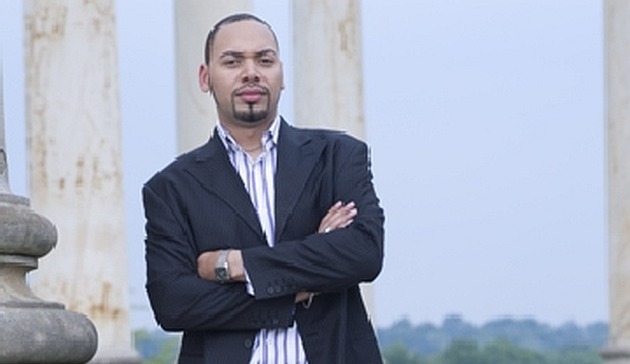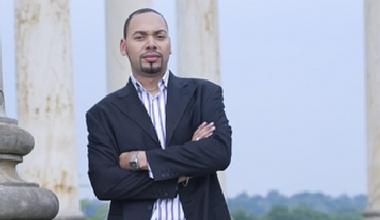
The impressive bass Kevin Thompson, to be featured in this summer's Santa Fe Opera season, a star of WBO's earlier Abduction from the Seraglio, in which he played Osmin, here sings another baddie, Faust's nemesis, the Devil himself. To get a sense of the gravitas expected from Thompson's Méphistophélès, listen to his Agnus Dei from Beethoven's Missa Solemnis.
Tenor James Callon (a veteran of Opera San Jose, Los Angeles Opera, and others) appears in the title role, soprano Elizabeth Zharoff (Merola 2011) is Marguerite, mezzo Patrice Houston is Marthe. Bernardo Bermudez is Valentin, Molly Mahoney is Siebel, and Ryan Bradford is Wagner.
The stage director is Ragnar Conde Knape, from Mexico, who has directed over 70 productions in Mexico, Colombia, the U.S., and Europe. Besides extensive theater and opera experience, Knape has also been active in the film industry. He was an apprentice stage director with the 2011 Merola Program and has recently directed WBO's Tales of Hoffmann and Samson et Dalila.
For the production, a "retro-futuristic style" is promised, whatever that may be – although the small company’s productions have been consistently impressive well beyond what might be expected from its resources – with sets by Peter Crompton and costumes by Abra Berman.
Moscovich, who brings boundless energy and enthusiasm to every production, says this of the WBO Faust:
As a piece of theater, this is as good as it gets in opera, but stagings often seem limited, especially considering the wealth of material in the score. The score doesn't just deliver interesting characterizations and propulsive story-telling; it also offers plenty of depth and delicious ambiguity. It provides room to try different interpretations, different perspectives on the story and the plight of its characters.
Remarkably, it does so with melodies and rhythms that are quite infectious. The famous "Faust Waltz" is a good example. It's easy to just stage it as a light and elegant dance. But what's in the score is far from a bunch of refined French ballet dancers in tutus. This is a veritable explosion of energy, inciting everyone, quite literally, if you consider the libretto, to dance themselves into ecstasy.
This is as close to sex onstage as the French could get in 1859. So, it's not hard to take the story and move it to a dystopian future. The story is so very much about human nature that it would certainly survive a nuclear holocaust, and perhaps even be more relevant then."

